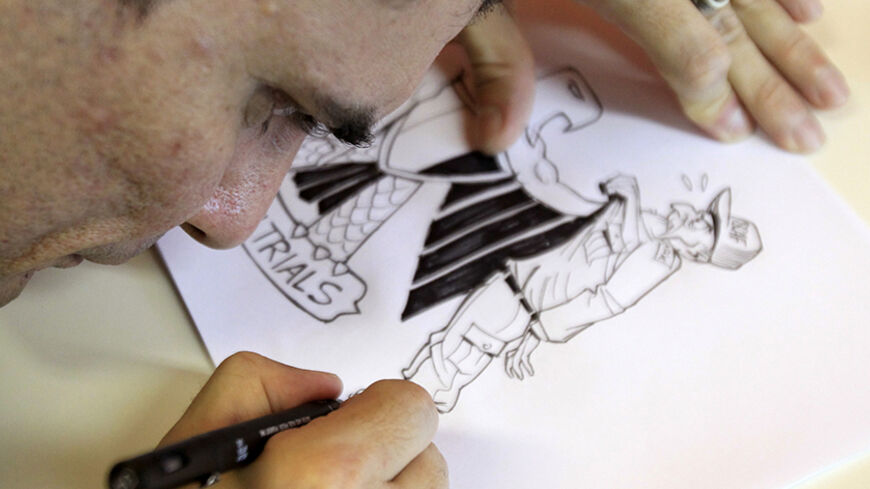Brazilian political cartoonist Carlos Latuff is popular with my 12-year-old son who grew up seeing Latuff’s cartoons on my computer and who refers to him as his "Middle Eastern politics teacher." Several of my college students with Latin American or Middle Eastern roots regularly follow Latuff’s work. His passion for Palestine, his work titled “Tales of Iraq War” and his respect for religious values have made him rather popular among Turkish Islamists over the last decade. Latuff is known for his courageous and unapologetic stand with oppressed groups all over the world. No human concern is too distant and irrelevant for him.
He is a hero to not only the left wing but also the Islamists in Turkey. For this reason in January 2015 pro-government daily Sabah praised Latuff by calling him “a world-renowned Brazilian cartoonist.” Yet on Dec. 8, the Official Gazette reported that Latuff's website was banned and could no longer be accessed in Turkey.



